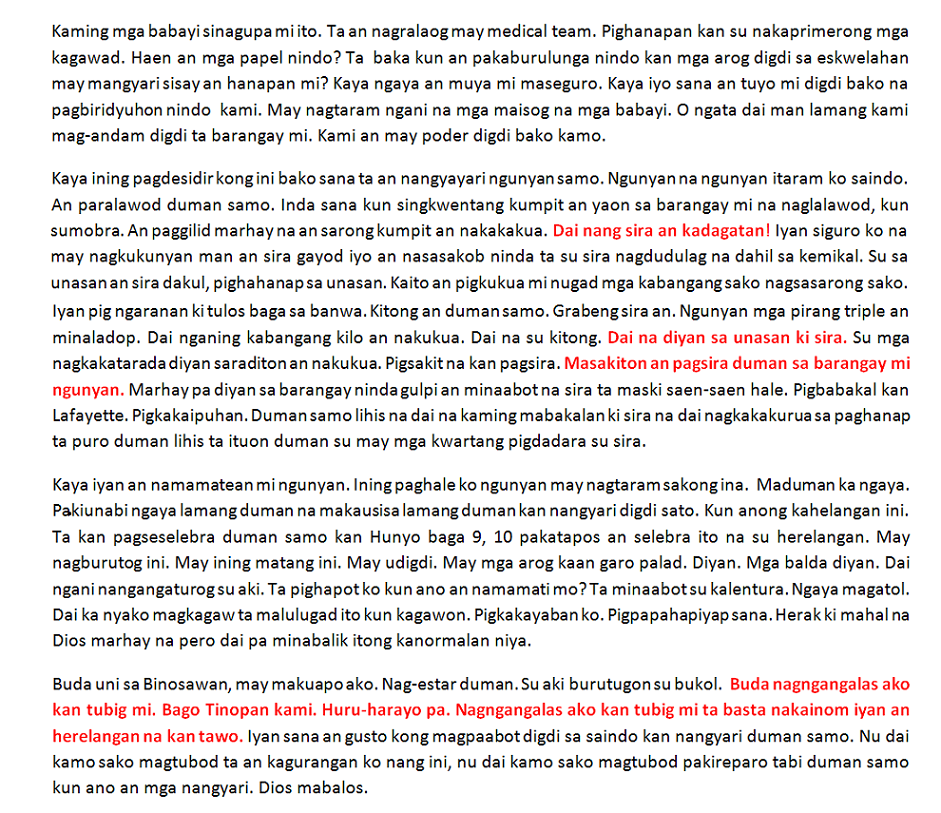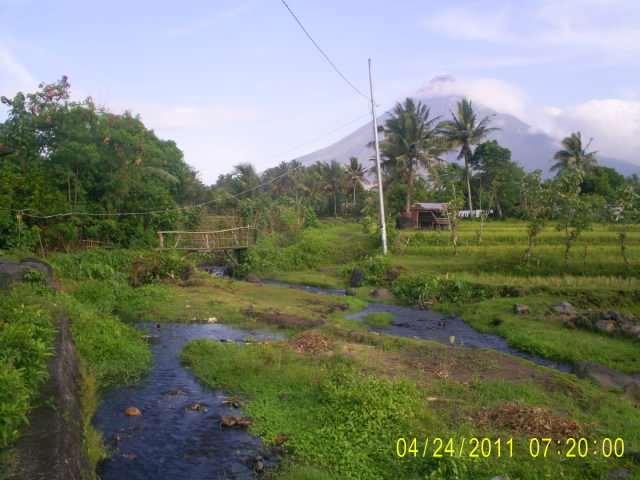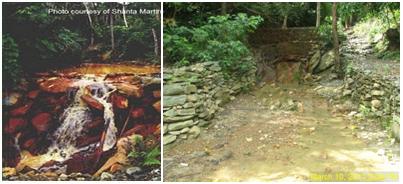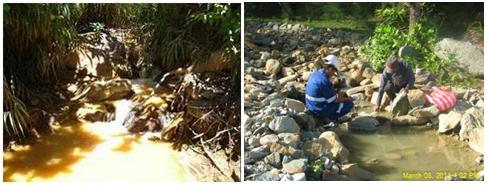Wednesday, December 05, 2007
http://www.manilatimes.net/national/2007/dec/05/yehey/top_stories/20071205top4.html
ENVIRONMENTALISTS welcomed news of a trading halt of Australian-owned firm Lafayette Mining Limited this weekend, believing that it signals a possible end to its controversial mining operation on Rapu-Rapu Island, Albay.
The environmentalists have never let up in their opposition to the flagship mining project on Rapu-Rapu island that has allegedly resulted in at least two mine spills and three fish kills since 2005.
The firm was also the subject of a controversial report commissioned by the Department of Environment and Natural Resources in 2006 that detailed environmental damages it had wrought, and allegations of faulty reporting of the company’s income that undercut the value of excise taxes it paid to the Philippine government.
Lafayette Mining Ltd. advised a trading halt in the Australian Stock Exchange from November 30 to last until December 3.
The company later decided to continue to suspend trading beyond December 3, with no date indicated to resume trading.
In another letter released on December 4, the Australian management advised an indefinite trading halt as the company “continues to hold discussion with its key stockholders regarding a new plan that can provide a viable basis for the company and its Rapu-Rapu project to move forward.”
“This development is a tactical victory over Lafayette. The investor pullout comes in the wake of strong protests by Rapu-Rapu residents and environmental groups to stop Lafayette’s mining operations as well as a devastating fish kill in October which is widely believed to be related to the mine project,” said Clemente Bautista Jr., national coordinator of Kalikasan People’s Network for the Environment, in a statement.
In a letter addressed to Nicholas Ong, senior adviser at the Australian Securities Exchange in Perth, and dated November 30, Lafayette Mining Ltd. requested an immediate trading halt in its securities after a new investor group announced its pullout from the Rapu-Rapu mine project.
An investor group had initially planned to buy the company out of its debt obligations of A$269 million, but this apparently fizzled out.
Early in October 2007, Lafayette announced a “major restructuring” and “recapitalization” of the project, which is essentially a buy-out of the bank lending group by a new “Special Purpose Vehicle” (SPV) jointly owned by Cornerstone Investors and South East Asian Strategic Assets Fund LP, a Malaysian private investment firm.
Under the preliminary agreement, the SPV will buy all outstanding debts, capitalized interest and fees owed by the project to the bank group. The SPV will purchase this for a proposed sum of $123 million (50 percent of face value).
Bautista said, “Cornerstone Investor’s pullout from the deal only and Lafayette’s crippling debt obligations only unmask how weak and financially unstable the Rapu-Rapu mining project really is. It is another reason why Lafayette’s mining project in Albay should be terminated immediately.”
As of June 30, Lafayette is “near bankruptcy.” “Based on its annual report, Lafayette has total liabilities of A$348,300,418, with a net loss of A$224,507,576. In 2006, it had a net loss of A$172,202,840.00,” he added.
Rapu-Rapu’s expected suspension of its operations will directly affect 300 workers, only 5 percent of whom are considered regular, and the rest contractual, based on a survey conducted by Ibon Databank.
Rapu-Rapu residents, meanwhile, vowed to launch more intense and massive protest actions calling for the immediate closure of the mine.
Antonio Casitas of Sagip Isla Sagip Kapwa, a local community organization of Rapu-Rapu residents, promised no let-up in current local protest actions against Lafayette, which included protest rallies in front of the provincial capitol in Legazpi City and before the municipal hall in Poblacion since the November fish kills.
Groups opposing the mining plant’s operations are planning to hold starting today, December 5, a third Kampong Bayan or protest encampment to pressure the Rapu-Rapu town government and Albay provincial government to ensure the mine’s full closure.
They are also pressuring the Department of Environment and Natural Resources and the Bureau of Fisheries and Aquatic Resources to release their findings on the third fish kill, which happened in end-October.
Lafayette became controversial after allegedly causing two mine tailings spills that led to fish kills on October 11 and 31 in 2005.
It started operation again in February 2007 after making some 36 corrections in the plant’s operations. Months ago, the plant planned to extend its operations to other areas of the island, all moves of which were strongly opposed by affected communities.
More than 1,000 fishers were affected by the three fish kills that had hit the island.
































































































































No comments:
Post a Comment